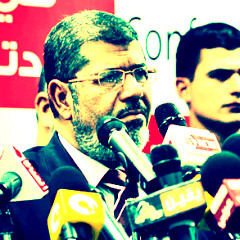
The position of Christians in the Middle East appears today more tenuous than ever.
“[T]here is now a serious risk that Christianity will disappear from its biblical heartlands,” said Rupert Shortt in a recent report for the British think tank Civitas, citing estimates that “between a half and two-thirds of Christians in the region have left or been killed over the past century.”
Shortt’s report, entitled Christianophobia (PDF here), does not hold Christians blameless for some of the grief they’ve occasioned. Nor is he exclusively criticizing Islam, but it’s worth focusing on the crises facing Christians in the Middle East and their response.
Egypt’s Animal Farm
After months of unrest and a hastily passed new national charter, Egypt’s Islamist president, Muhammad Morsi, today mouthed words of assurance to his worried countrymen. “All are equal before the law, and in this constitution,” he said, adding, “freedom [exists] for all people, with no exceptions.”
Save of course those exceptions built into the law itself, which stacks the deck against Christians, as we’ve covered here. Make no mistake: Morsi’s equality is Animal Farm’s equality. To the president and the Muslim Brotherhood, some Egyptians are more equal than others.
Since the revolution, “Copts have . . . been living on a knife-edge,” said Shortt. And the new charter, which enshrines certain discriminatory policies, does nothing to blunt their fears.
Iraq’s missing believers
Christianophobia also points to Iraq, an historically Christian area — home to great lights of the church like Ephraim the Syrian and Isaac of Nineveh — now perhaps most notable for it’s lack of Christians. “In 1990, there were between 1.2 and 1.4 million Christians in the country,” said Shortt. “By the time of the second Gulf war in 2003, this figure had fallen by about half a million. Today, fewer than 200,000 remain.”
Islamist aggression is responsible for driving many Christians out of the region. “The systematic desecration of Christian places of worship began with an assault on a church in the northern city of Mosul in 2004,” Shortt said, adding:
On August 1 of that year, a bomb was detonated at St Peter and St Paul’s Church in the Christian town of Al Dora. Five other churches around the country were bombed on the same day; 12 people were killed, and many injured.12 By early 2011, at least 66 other churches had been bombed or invaded: 41 in Baghdad, 19 in Mosul, five in Kirkuk, and one in the city of Ramadi, about 70 miles west of the capital. Two convents, a monastery, and a church-run orphanage had also been bombed.
The war and the rise of Islamists have been devastating to Christians, but the bleed has been going on for decades. “There were almost 250 Christian villages in northern Iraq at the end of the Second World War,” according to Shortt, but “by the end of the 1960s, dozens of them had been destroyed.” Sunnis and Shiites might disagree on everything but one thing: they are no fans of Christians.
Not giving up
For all the grim news, perhaps what is most surprising about Shortt’s report are the slender but bright rays shining through. The beleaguered Christians of Iraq seem to be holding on as best they know. Displaced Christians are, for instance, building new churches as they resettle in new areas.
And some are refusing to leave, despite Islamist threats and attacks. Shortt mentioned one family who stubbornly stays in Mosul, quoting one of the children: “Our father said, ‘If all of us Christians leave, who is going to stay in the land of the prophets and pray in our churches?'”
“This is not a time to hide our faith or our identity,” said the Chaldean Catholic Archbishop of Erbil in Iraqi Kurdistan, Bashar Warda. “In Iraq, forty years of war and oppression have strengthened our endurance and our resolve to stand strong and to claim our legal and historical right as a Church and as a people. . . . We have not come this far to give up.”
God is coming
Similarly, there hope among some Copts in Egypt.
“Some say this country is being destroyed or being stolen. But I say God is coming, and he will not be late,” said Fr. Andrawus Iskander, a priest from the Nile Delta, according to a report from Christianity Today. “This year will be the best ever for the church. The heavens will open and we will be united. We will be freed from fear and learn to love.”
And said Ramez Atallah, president of the Bible Society of Egypt, “[W]e must never feel God is against us because we prayed for something and did not get it. It is very dangerous to connect the two.”
Regardless of election outcomes or the hatred of persecutors, Christians’ lives are still hidden with Christ in God, the lover of mankind (Col 3.3).












